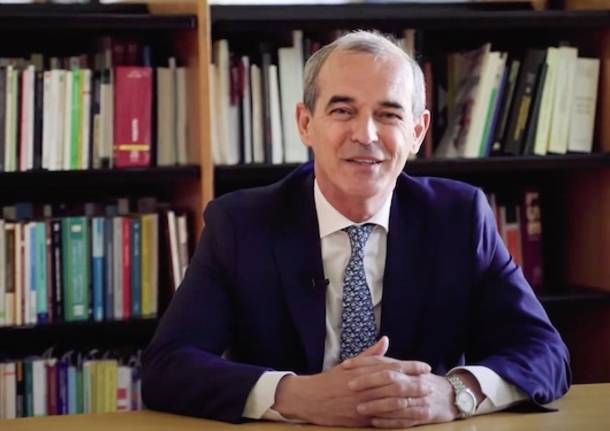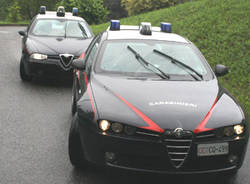From previous to progress, a good manager manages the change
Federico Visconti, dean of Liuc Univerity, faces the topic of the opening of the SMEs (small and mid-size enterprises) to management. “The businessmen, even though they are people with an important role in the economy, are struggling to reinterpret the model.”

“Open, open, open!” This triple request already made 10 years ago by the authors of the book “Gli Imprenditori” (Egea), Federico Visconti (photo) and Guido Corbetta, with references to the paths to choose by businessmen, this request is still valid, in view of the challenges that are waiting for the firms after the pandemic.
“Many firms are really in need of breathing some new life into these places” the two authors wrote then. But it requires big efforts to breathe this new life from an external participant, like a manager for example, both on the personal level and on the professional one. The businessman must be at least aware of this need and grow in relation to their own relationship skills, while the manager must put in place, besides the technical skills, also the personal talents such as their capability to listen and their frankness.
Many years have passed from that publication, Federico Visconti, in the meanwhile, became dean of Liuc Cattano University in Castellanza, but the firms, especially the smaller ones, distinguished – in many cases controlled – by the charismatic presence of the businessman, are struggling to open.
The Research Centre of strategic management and family business of Liuc Business School, in collaboration with Federmanager, is finishing a study dedicated to profiles of managers that are useful to SME development.
Dean, what questions should a good manager consider?
“The good manager must focus on the goals of development of the company they are in charge of, and these goals go through history. The fundamental dimensions of management are closely linked to the historical period, from the first postwar in Italy to the Pandemics, going through the crisis of the financial markets. The good manager sets their own goals, starting with the economic and financial ones. If a company is well run and has competitive results, it tries to grow. If the business has plunged but it has lost less than the others, it has achieved a market share. Moreover, there are social goals for example the satisfaction of the employees and the trust of the stakeholders. The manager must have a systematic mission, which consists in understanding the upgrades of the skills necessary to the inferior levels, with differences between sectors and different business dimensions. In the scenario of 2022 it is certain that it will have to be more digital than mechanical.”
What are the most frequent mistakes made by managers?
“Many choices depend on ownership. When we talk about the concept of responsible ownership, we imply what leads to choosing certain resources in the moment when the businessman has understood certain things. A first response is linked to the person who integrates the manager in a given company and in the name of which principle and especially of which development that choice was made. One of the biggest problems we have in Italy can be dismissed with this joke: “It is part of the record” and the record is an enemy of management. This rule applies to all scopes where there’s finalism: to school, to hospitals, to newspapers and to companies in general. The market expresses who is better and who is worse, when one is good it means it is well run. Maintaining record and not intervening has positive reasons too, not only negative ones. But not managing record can undermine progress.
It sounds like a word pun…
“It does, but it is what is actually happening. The biggest mistake managers make is upstream and concerns a choice: putting the right person at the right moment. Not intervening at the lower levels in the name of record is a mistake because it means rejecting the challenge of change. Then, one can always be mistaken, but there is a huge difference between making a mistake and not trying to play the game at all. So, the manager who doesn’t put in account the transition from record to progress is mistaken. Churchill, about many evils which affect the world, asserted: “The problem consists in the fact that men don’t want to be useful but instead they want to be important.” This idea of marginal usefulness is a significant topic in 2021. Another mistake consists also in not learning from the young people and not letting them play the game. A young adult, educated in our universities, can produce value when integrated in a company. But if we put the record and all the organisational objections in between, the young adults will never be integrated into the companies. We must question the model of attractiveness of our companies, giving the young people working conditions with prospect, many things which in the company of Mr Brambilla, but sometimes also in multinational corporations, are not always present, especially in these difficult years.
Managers are not only required to have technical skills but also soft skills. What should prevail?
“There is a topical issue here. Organisational processes, especially in phases such as the one we are going through, presuppose leaders in every sense, including charismatic ones. It is said that Marchionne, as soon as he arrived at Fiat, did nothing but interview the group’s executives for over a month to decide how to reorganise. This is an example of how to be with people. That means being able to investigate problems, accepting confrontation and listening – in other words, being able to work in a team. If they had put a great mechanical engineer in that role, a genius who was a super expert on the hinges of Iveco vans, he would have had a hard time keeping people on his back. When it comes to soft skills, there is an issue of balance. I mean, it’s not that the best turner is the best head of turners, in fact he probably has an ego that doesn’t help the organisation”.
Why is the issue of involvement so important?
“To bring out the great wealth of knowledge that companies have, perhaps linked to a normal workshop manager or someone who knows how to make purchases well, which is generally not shared very much. One of the great challenges that organisations have is to have a certain generosity of sharing. Today, however, ‘silos’ tend to prevail because the defence mechanisms are so high. Managers hold the destiny of the organisational challenge in their hands and their task is to make these institutional languages pass. And in Italy we are quite arid in this respect, because everyone cultivates his own little garden. One can be very good at processing invoices, but it is always a service. For someone to run an invoice, first there has to be a good salesperson who goes and sells the products in China, perhaps in the middle of Covid. It’s not enough to say: ‘mine is a nice product’. You need the right materials and the right price to take it to the various markets. We are talking about a challenge to integration that entrepreneurs make in a charismatic sense. There is definitely still a need for a figure who can go around the factory, but there is also a need for a slightly different level”.
The research you conducted with Federmanager also investigates the relationship between managers and ownership. SMEs are not always attractive enough and do not always have the resources to hire.
“The integration between managers and entrepreneurs in small and medium-sized enterprises is not so smooth. On the issue of cost, the time has come to do some soul-searching. It is clear that for a company that, for example, has a turnover of 8 million euros, it is not easy to free up 150,000 euros for a good manager. Today there are many good managers and they are willing to put themselves on the line even for less money. Then it often happens that it is the manager themself who gets that money back, eliminating pockets of inefficiency in the company and making the entrepreneur discover new markets. The problem is the model of interaction with the entrepreneur, because if a manager with a certain personality and ability arrives in the company, they will ask for space. There is a comparison of roles, of working methods, taking into account that managers have a more short-term horizon while entrepreneurs, with their patient capital, can look to a longer horizon. We need a deeper consideration about the preconditions starting from the goals. For example, a manager who is quite tough could ask a businessman to remove his child from operative roles because they don’t want a pain in the butt in the company. A good manager, instead, tries to make the new generation grow in that role. Companies, in this aspect, are moving forward, but I see a lot of resistance yet. We do not forget that businessman is alone in their decision, with a responsibility so big, that if they can’t pay salaries they don’t sleep at night, forced to live with a bureaucracy by now intolerable. And even being people with a big role in economy, they struggle to interpret the model”.
Is there a culture of measuring results in Italy?
“While I was visiting a multinational company with students, a manager in charge of control, prompted by a question I asked about the rather sophisticated system of management, replied that: “It is precisely when the company is doing well that you have to do sophisticated performance analysis”. I believe that the instrumentation in companies, in the calculation of margins, production flows and investment simulations, is not so advanced. To tell the truth, progress has been made in SMEs, but I think there is still a very administrative matrix and a reading that is always the same, i.e. revenue and cash. This double reading is fundamental, but it doesn’t help you make important decisions, such as whether to implement or eliminate a production line, for example. In this sense there is an issue related to skills. It certainly cannot be an administrator at the end of his career, who has always dealt with VAT, who can check the contribution margin of a single product. And if you bring a young person into the company who knows a lot about management control and the first question you ask them is about VAT, it’s clear that you will electrocute them. This requires a very strong role on the part of the entrepreneur, who must be able to prioritise. In short, in our SMEs the managerial spaces, linked to organisational variables, remain important”.
How does Liuc University address this need?
“At Liuc there are many opportunities to listen to companies, as well as dedicated courses. The role of research in this sense is important, and it seems to me that this aspect is coming out strongly even after the pandemic, despite the fact that in Italy there is no culture of investment in research. How much dormant capital do we have that could be invested in that sector with a view to patronage? Ferruccio De Bortoli himself wrote about this last May, and Liuc entered the public debate with an open letter. The minister has just reminded us that we need quality research, which is what is done in universities. What we are doing with Professor Lazzarotti, in collaboration with Federmanager, is quality research. It will make it possible to publish scientific papers, hold conferences, and give young researchers space in the media. This is the job of the university. It is therefore by putting investment in quality research back at the centre that we are responding to this need. At Liuc we are moving in parallel with didactic information, iFab, Life Skills for management, all of which are part of the model of disseminating knowledge, but which you have to produce because research is nothing more than the frontier of knowledge.
Translated by Micol Viviani, Michela Villa, Adriana Bocse and Sara Guarneri
Reviewed by Prof. Robert Clarke
La community di VareseNews
Loro ne fanno già parte
Ultimi commenti
fratetoc su Malpensa e Superstrada blindate per le Olimpiadi: scatta la chiusura della 336
Andrea Camurani su Forti rallentamenti per neve, la situazione sulle strade in provincia di Varese
Bustocco-71 su Forti rallentamenti per neve, la situazione sulle strade in provincia di Varese
PaoloFilterfree su “Ho sfiorato il cielo”: Paolo De Chiesa racconta la sua vita dalle vittorie sugli sci al colpo di pistola al volto
PaoloFilterfree su La presidenza come feed
Viacolvento su Gli aumenti nelle rette e il rischio-defezioni alla Fondazione Scuole Materne di Gallarate
















Accedi o registrati per commentare questo articolo.
L'email è richiesta ma non verrà mostrata ai visitatori. Il contenuto di questo commento esprime il pensiero dell'autore e non rappresenta la linea editoriale di VareseNews.it, che rimane autonoma e indipendente. I messaggi inclusi nei commenti non sono testi giornalistici, ma post inviati dai singoli lettori che possono essere automaticamente pubblicati senza filtro preventivo. I commenti che includano uno o più link a siti esterni verranno rimossi in automatico dal sistema.